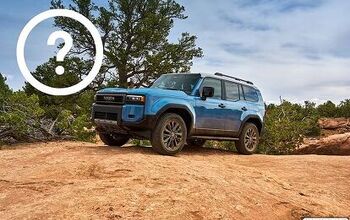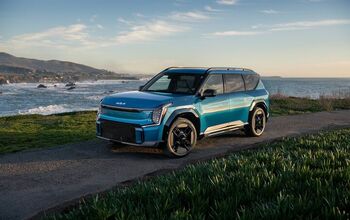The Cost of Going Further: Long-range Nissan Leaf Carries a Premium, Has Sights Set on GM

Nissan did Leaf fans a favor when it upped the model’s driving range to 151 miles for 2018, a healthy increase from the previous generation’s 107 miles. Still, 151 miles falls well short of the industry’s nice-sounding gold standard of 200 miles — the figure to beat (or at least reach) for most automakers. With range like the new Leaf’s, long-distance travel remains complicated, inconvenient, and perhaps even impossible.
It’s no secret that Nissan plans to offer an upgraded battery next year, but just how much extra cash you’ll need for that 60 kWh model remained a mystery. Until now.
According to order guides seen by CarsDirect, the extended-range 2019 Leaf, offered alongside the existing 40 kWh model, won’t start production until January. When the model eventually makes its way to dealers, expect a price premium in the neighborhood of $5,500.
That’s based on preliminary pricing. For the 2019 model year, a base, 40 kWh Leaf S retails for $30,885 after destination but before any state or federal incentives. The uplevel Leaf SL stickers for $37,095. Getting into a longer-legged version will probably cost you just over $36,000 for an S model, with the loaded SL retailing for about $42,500.
That puts the 60 kWh Leaf, which is said to offer 225 miles of range, in the same pricing territory as the 238-mile Chevrolet Bolt, though with a lower starting MSRP. However, the arrival of the new variant might bring reduced choice for buyers who aren’t as eager to avoid range anxiety. CarsDirect claims that once the long-range model hits the market, Nissan will likely scrap the 40 kWh SL model, which tops the base 60 kWh model in price. The lowly 40 kWh Leaf S would continue on as a top EV value choice.
While it doesn’t seem likely that many buyers will cross-shop the long-range Leaf and Tesla’s upcoming base Model 3 ($35,000) simply due to differences in brand appeal, the Nissan has one thing going for it the Tesla doesn’t: a full federal EV tax credit. Tesla’s full credit runs out at the end of the year, after which buyers will only see a $3,750 incentive for the first half of 2019. Nissan hasn’t yet sold 200,000 electric vehicles in the United States, so the full amount is waiting for anyone who wants it.
Over the first nine months of 2018, Leaf sales in the U.S. are basically flat on a year-to-date basis. It’s a slightly misleading statistic, as the changeover period for the new model basically erased January’s tally, with February’s coming in at half of average. Since then, the Leaf has posted monthly year-over-year increases more often than not. Last month’s Leaf volume showed a 48.2 percent increase over the previous September.
[Images: © 2017 Matthew Guy/TTAC, Nissan]

More by Steph Willems
Latest Car Reviews
Read moreLatest Product Reviews
Read moreRecent Comments
- Calrson Fan Jeff - Agree with what you said. I think currently an EV pick-up could work in a commercial/fleet application. As someone on this site stated, w/current tech. battery vehicles just do not scale well. EBFlex - No one wanted to hate the Cyber Truck more than me but I can't ignore all the new technology and innovative thinking that went into it. There is a lot I like about it. GM, Ford & Ram should incorporate some it's design cues into their ICE trucks.
- Michael S6 Very confusing if the move is permanent or temporary.
- Jrhurren Worked in Detroit 18 years, live 20 minutes away. Ren Cen is a gem, but a very terrible design inside. I’m surprised GM stuck it out as long as they did there.
- Carson D I thought that this was going to be a comparison of BFGoodrich's different truck tires.
- Tassos Jong-iL North Korea is saving pokemon cards and amibos to buy GM in 10 years, we hope.



































Comments
Join the conversation
225 miles is not "long-range", in fact it's well below average if compared with ICE-powered cars. There's no reasons to hold EVs to a different, lower standard than ICE-powered cars, and so calling this version of Leaf "long-range" is a lie. As if that wasn't bad enough, the Leaf's below-average range is compounded by a well-below-average charging time, which significantly exceeds industry standards of 5 minutes or less for filling a fuel tank.
$5 grand for the equivalent of a 3 gallon larger gas tank - sounds like the deal of the century.